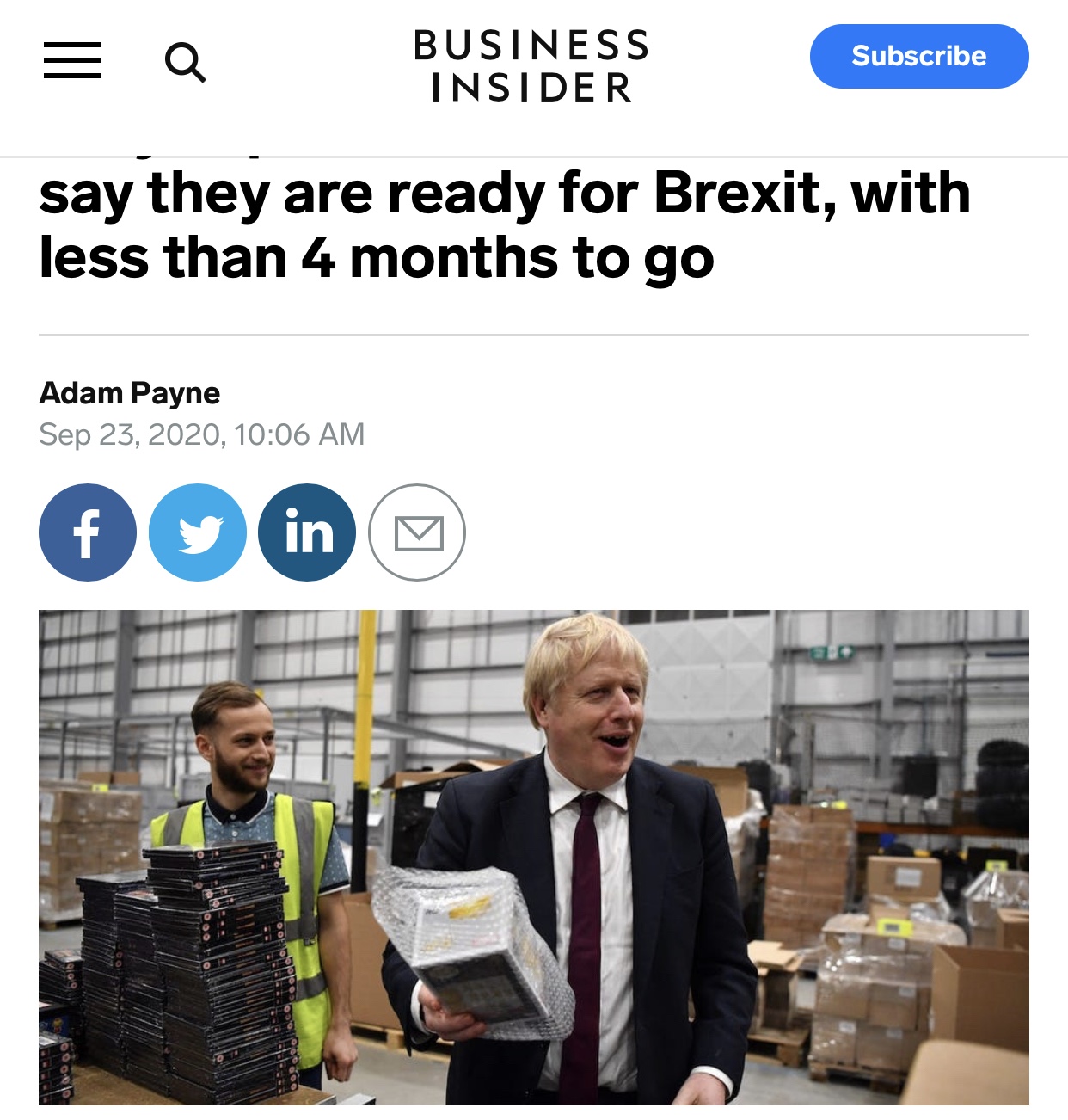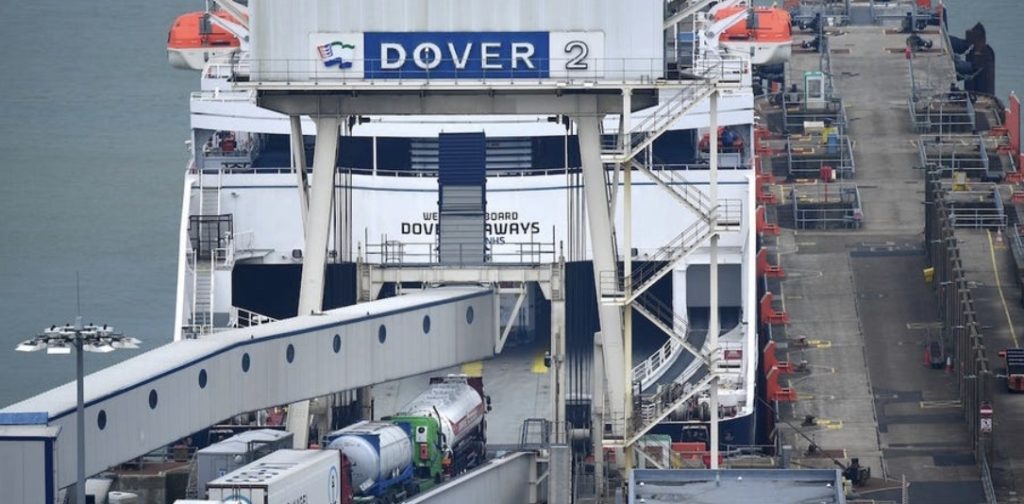Only a quarter of UK businesses say they are ready for Brexit, with less than 4 months to go
Only a quarter of UK businesses are ready for the end of the Brexit transition period in less than four month’s time, Boris Johnson’s government has revealed.
Michael Gove, the chancellor of the duchy of Lancaster, on Wednesday told the House of Commons that a government survey had found that while 78% of businesses had taken some steps to prepare for breaking away from European Union trading rules on January 1, just 24% said they were fully ready.

Gove also revealed that close to half of businesses surveyed — 43% — believed that the Brexit transition period would be extended, despite the legal deadline for extending the period having already passed.
The statistics paint an alarming picture of Britain’s readiness for leaving the EU’s single market and customs union at the end of the year.
Major Business groups have spent recent weeks warning Prime Minister Johnson’s government that many businesses, particularly SMEs, are too focused on coronavirus to prepare for additional friction with the UK’s biggest trading partner.
In his statement to Members of Parliament, Gove presented worst-case scenario estimates that 50% of large businesses and just 20% of small-and-medium sized businesses would be ready to export to the EU from January, and that as few as 30% of truckers will have the correct paperwork to enter the EU, with the rest facing being sent back by EU border officials.
Chaos at the border in January could lead to queues of 7,000 trucks on Britain’s motorways, Gove told MPs.
The UK will drop out of the EU’s trading rules at the end of the year meaning there will be an array of new checks on goods going to and from Britain and the continent as of January.
Johnson’s government estimates that there will be over 400 million additional customs checks a year on goods moving between the UK and EU and is building up to a dozen new lorry parks across the country to hold truckers who do not have the correct paperwork to cross the border, including a handful in the county of Kent.
Rachel Reeves, Labour’s Shadow Chancellor of the Duchy of Lancaster, accused Gove of seeking to deflect blame for any problems onto businesses.
“It is all well and good to tell businesses to ‘act now’ but without the systems in place, frankly it’s like telling me to bake a cake without remembering to turn the oven on,” Reeves said.

Logistics groups on Wednesday reacted angrily to government suggestions that UK traders would be to blame in the event of disruption at Britain’s borders.
Robert Keen, director of the British International Freight Association, told the UK government: “Don’t start pointing the finger of blame in our direction when you have still to provide all of the tools to do the job” and “give our members all they information they need, and systems that actually work and they will be more than able to do what is necessary.”
Logistics UK’s Elizabeth de Jong said it had “long warned government” about the risk of delays at the border and that it was “incumbent” on Johnson’s government to provide details of how the borders and systems being developed to handle new checks would work.
They were responding after a letter sent by Gove to the industry said that chaos in January would be caused by traders not being ready for the changes.
George Eustice, the UK’s environment secretary, on Tuesday appeared to shift the blame for any disruption in January onto Brussels, telling UK members of Parliament: “We [the UK] can do all the work in the world to make sure our borders are ready… But if when they [truckers] arrive at the other side it’s all a bit slipshod and disorganised and there’s therefore chaos because of failure of the EU to plan.
Source:BusinessInsider
You must be logged in to post a comment.